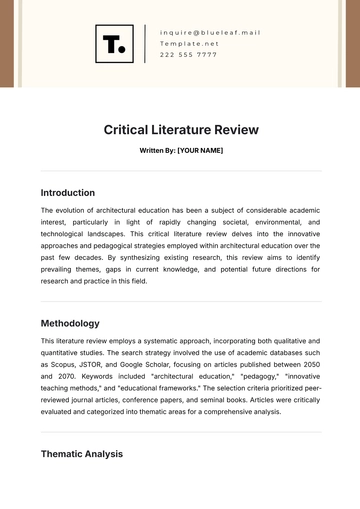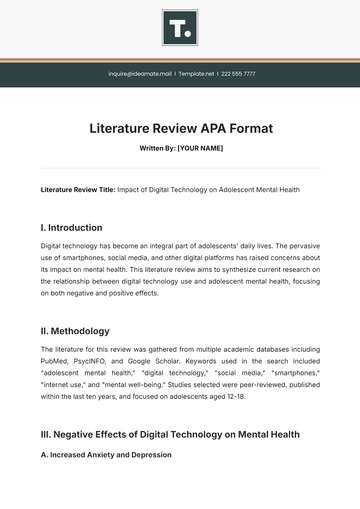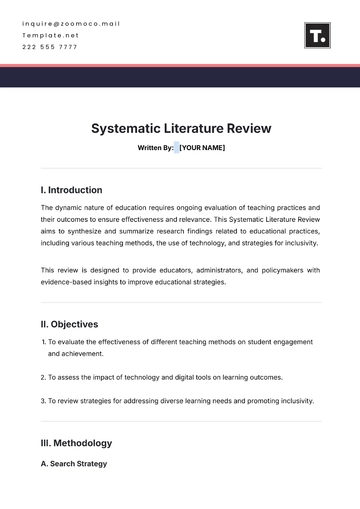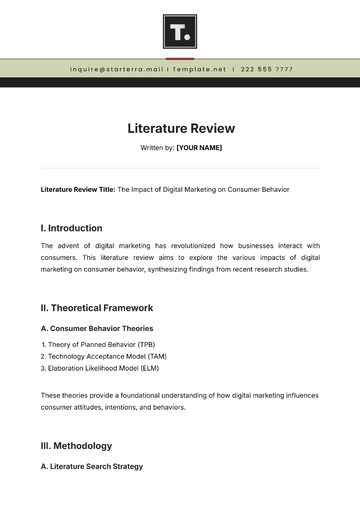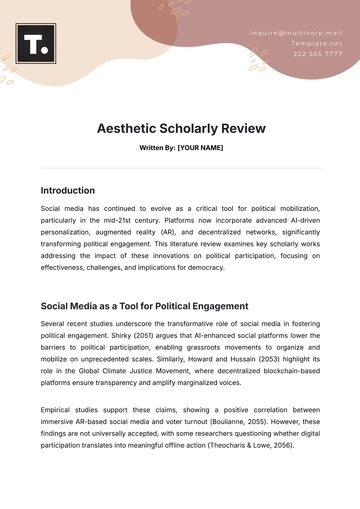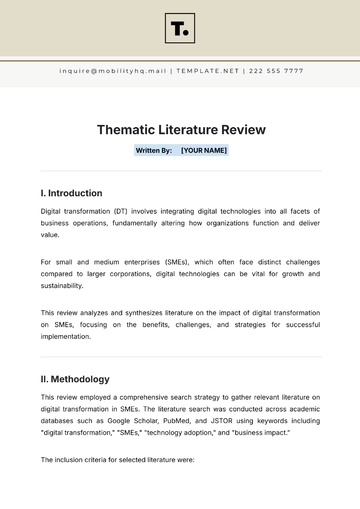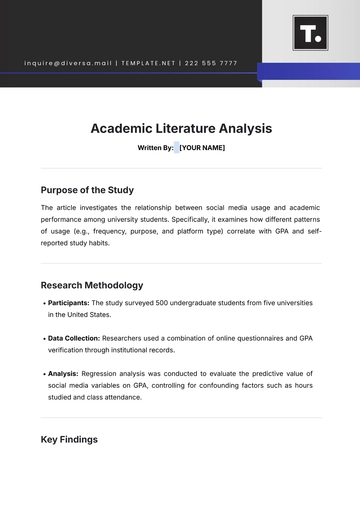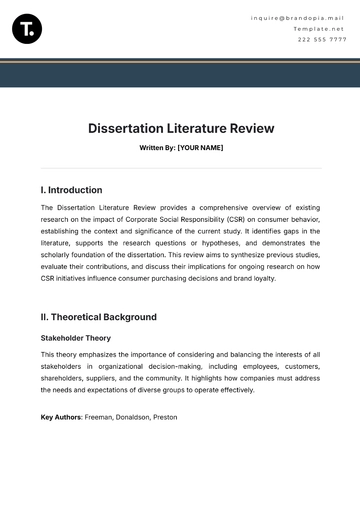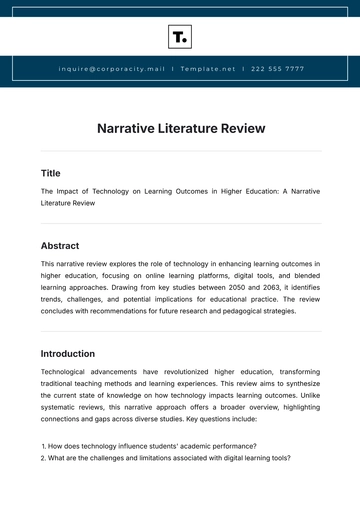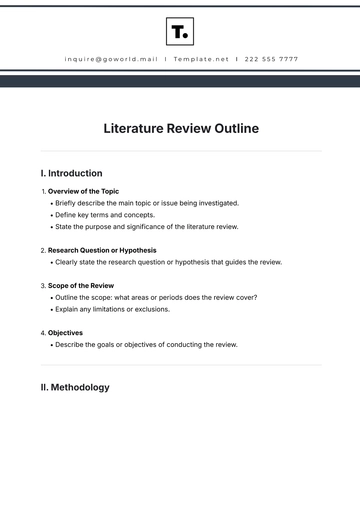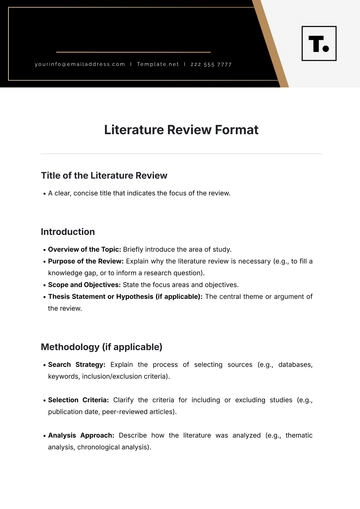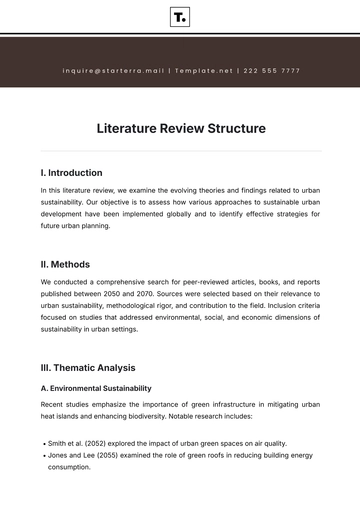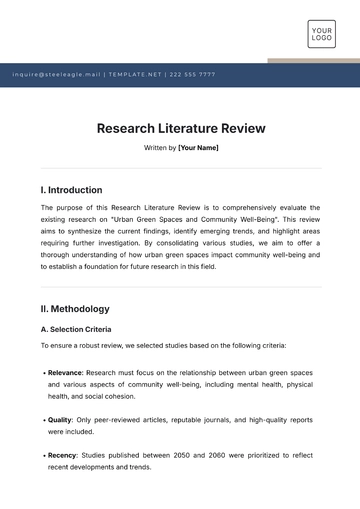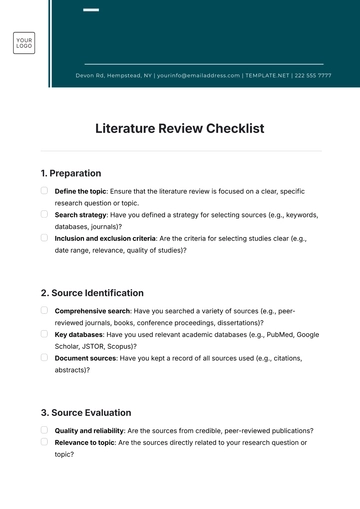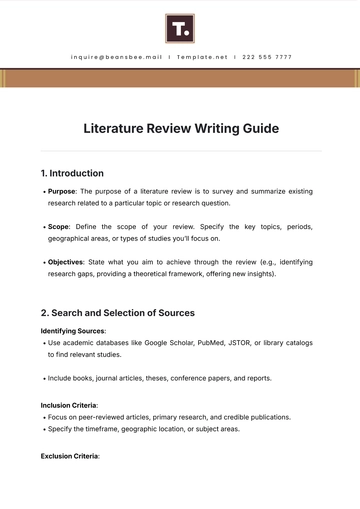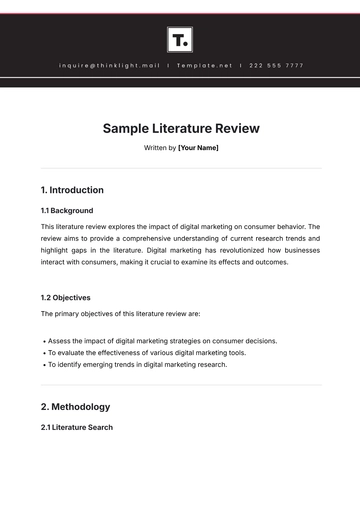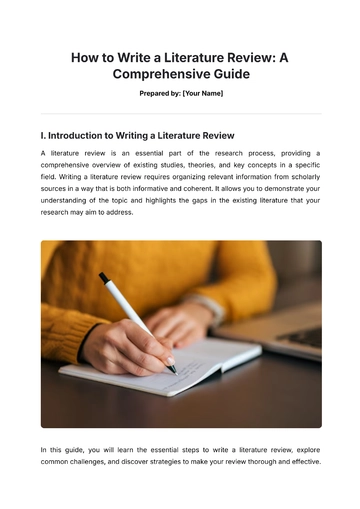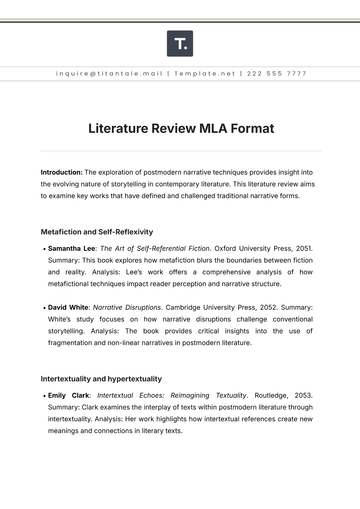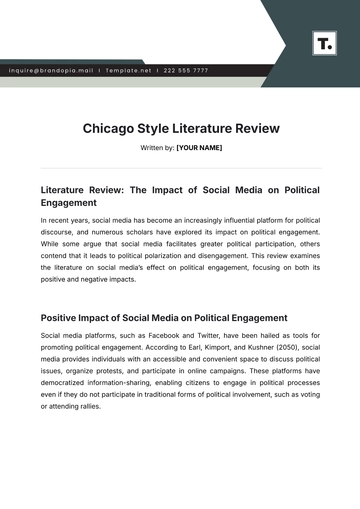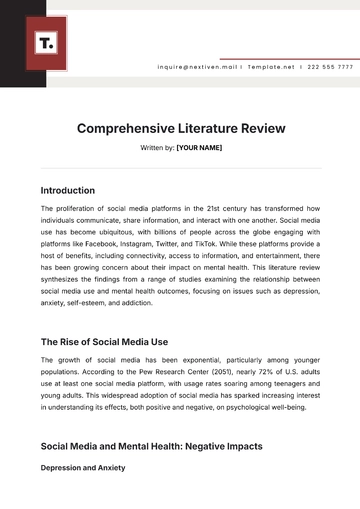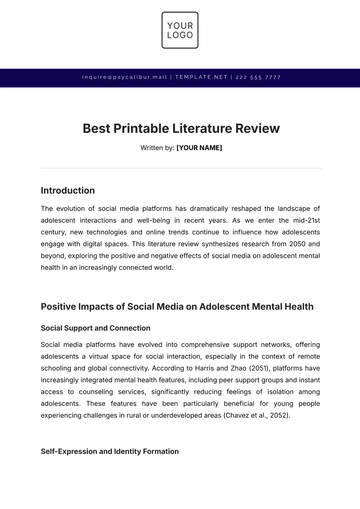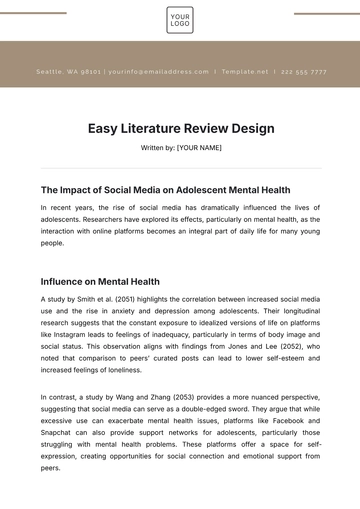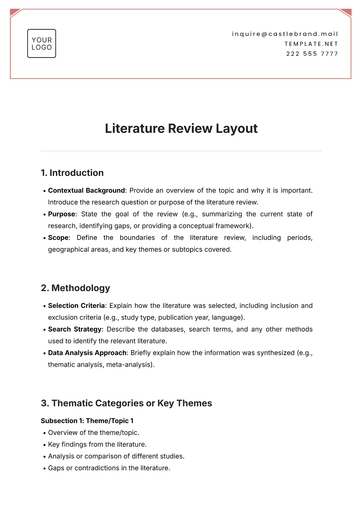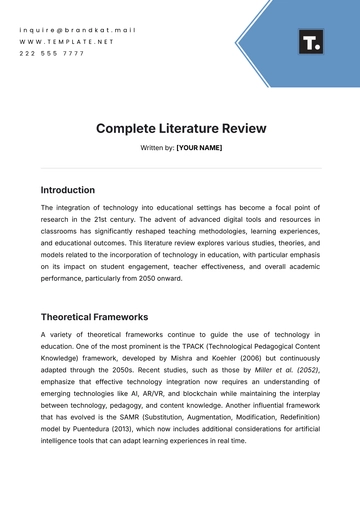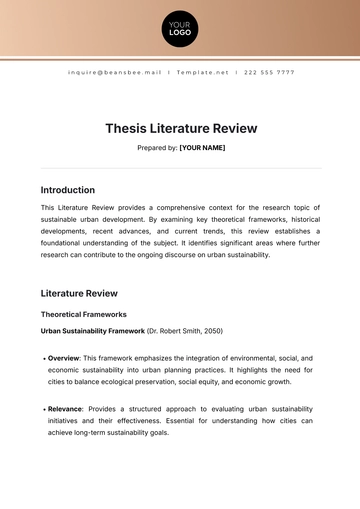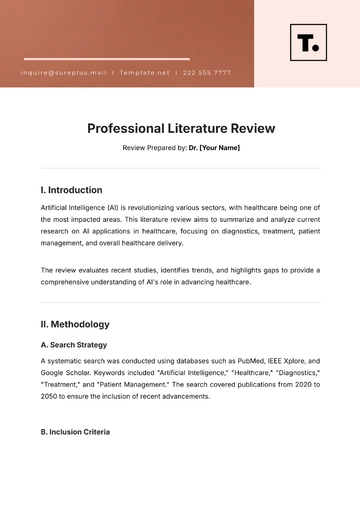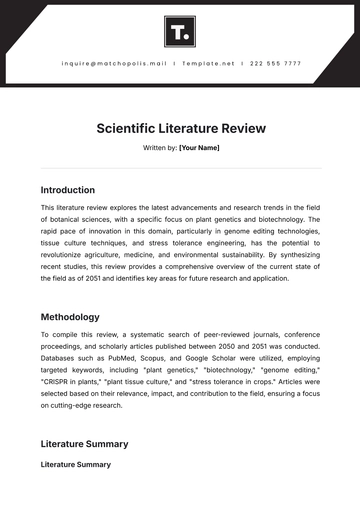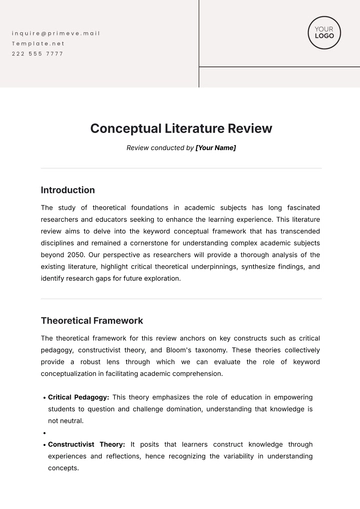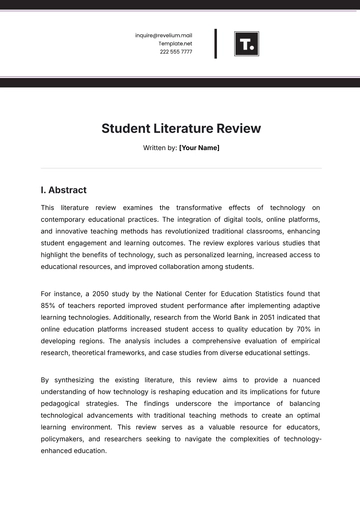Free Thesis Literature Review
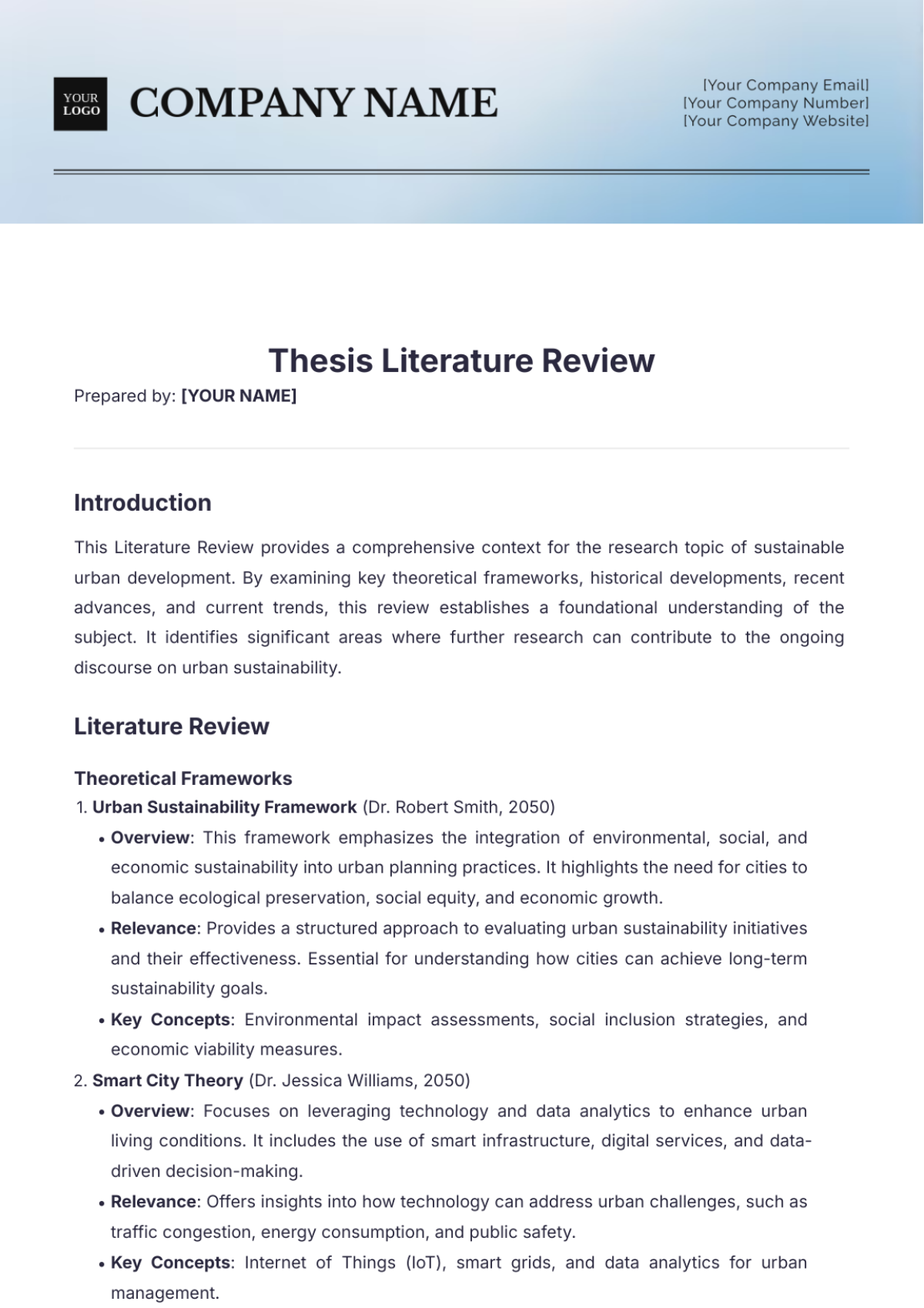
Prepared by: [YOUR NAME]
Introduction
This Literature Review provides a comprehensive context for the research topic of sustainable urban development. By examining key theoretical frameworks, historical developments, recent advances, and current trends, this review establishes a foundational understanding of the subject. It identifies significant areas where further research can contribute to the ongoing discourse on urban sustainability.
Literature Review
Theoretical Frameworks
Urban Sustainability Framework (Dr. Robert Smith, 2050)
Overview: This framework emphasizes the integration of environmental, social, and economic sustainability into urban planning practices. It highlights the need for cities to balance ecological preservation, social equity, and economic growth.
Relevance: Provides a structured approach to evaluating urban sustainability initiatives and their effectiveness. Essential for understanding how cities can achieve long-term sustainability goals.
Key Concepts: Environmental impact assessments, social inclusion strategies, and economic viability measures.
Smart City Theory (Dr. Jessica Williams, 2050)
Overview: Focuses on leveraging technology and data analytics to enhance urban living conditions. It includes the use of smart infrastructure, digital services, and data-driven decision-making.
Relevance: Offers insights into how technology can address urban challenges, such as traffic congestion, energy consumption, and public safety.
Key Concepts: Internet of Things (IoT), smart grids, and data analytics for urban management.
Historical Background and Evolution
The Green City Initiative (March 15, 2050)
Description: A landmark initiative aimed at implementing comprehensive green infrastructure projects in major cities around the world. This included the development of parks, green roofs, and sustainable drainage systems.
Impact: Set a new standard for urban environmental policies and demonstrated the benefits of integrating green spaces into urban areas.
Significance: Demonstrates how early adoption of green infrastructure can lead to long-term environmental and social benefits.
The Global Urban Sustainability Conference (June 22, 2050)
Description: An international conference that brought together experts, policymakers, and stakeholders to discuss and set global sustainability goals for urban development.
Impact: Fostered international collaboration and established a framework for global sustainability efforts, influencing urban policies worldwide.
Significance: Highlighted the need for a coordinated global approach to urban sustainability challenges.
Recent Advances and Current Trends
The Urban Resilience Study (Dr. Amanda Brown, 2050)
Overview: This study explores strategies to enhance urban resilience to climate change impacts, including extreme weather events and rising sea levels.
Findings: Revealed innovative approaches to improve urban infrastructure's ability to withstand and recover from climate-related stresses.
Relevance: Provides practical solutions for cities to increase their resilience and adapt to future climate challenges.
The Smart Urban Living Report (Dr. David Johnson, 2050)
Overview: An in-depth report on the integration of smart technologies in urban settings, focusing on improving efficiency, connectivity, and quality of life.
Findings: Highlights successful implementations of smart city technologies, such as intelligent transportation systems and energy-efficient buildings.
Relevance: Offers a contemporary perspective on how smart technologies can enhance urban living and support sustainable development.
Identified Gaps in Current Knowledge
Lack of Longitudinal Studies on the Long-Term Impacts of Green Infrastructure (The Green City Initiative Review)
Gap: There is a need for long-term studies to evaluate the sustained benefits and challenges associated with green infrastructure projects.
Implication: Addressing this gap will help in understanding the enduring effects of green infrastructure on urban environments and inform future projects.
Limited Research on the Socioeconomic Impacts of Smart City Technologies (The Smart Urban Living Report)
Gap: There is insufficient research on how smart city technologies impact various social and economic groups differently.
Implication: Further investigation is needed to ensure that the benefits of smart technologies are equitably distributed and to address potential disparities.
Conclusion
This Literature Review provides a foundational context for research on sustainable urban development by reviewing key theoretical frameworks, historical developments, recent advances, and existing gaps. It offers a comprehensive overview of the subject and identifies areas where further research can contribute to advancing the field.
- 100% Customizable, free editor
- Access 1 Million+ Templates, photo’s & graphics
- Download or share as a template
- Click and replace photos, graphics, text, backgrounds
- Resize, crop, AI write & more
- Access advanced editor
Optimize your research with the Thesis Literature Review Template from Template.net. This fully customizable and editable template simplifies the process, ensuring a comprehensive review. Utilize the AI Editor Tool for precise formatting and efficient editing. Perfect for students and researchers, this template enhances your academic writing and saves time. Download now!
